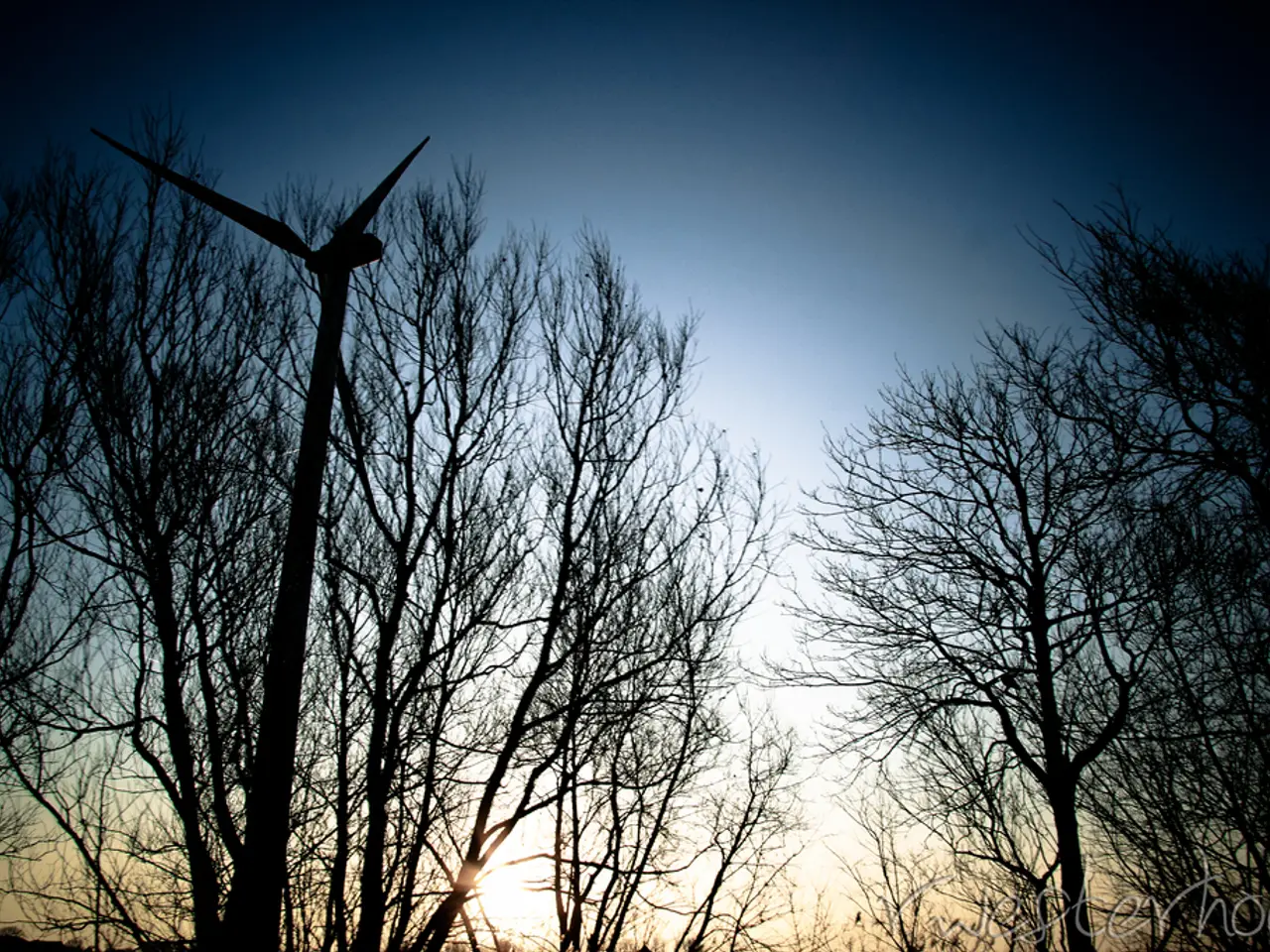Trump's antagonistic stance on Net Zero carbon emissions prompts Orsted, a major wind energy corporation, to seek additional funding
Orsted Faces Challenges in US Market Due to Trump's Policies
Orsted, the world's largest offshore wind operator, is grappling with financial difficulties in the United States due to policies implemented by the Trump administration. The administration's actions have significantly hindered Orsted's wind farm projects and broadly dampened growth in the global wind energy sector.
From the first day in office, Trump issued orders halting approval of leases, permits, and loans for offshore and onshore wind energy projects, including federally controlled areas crucial for large developers like Orsted. The administration froze new offshore wind leasing entirely, pulling back all areas of the Outer Continental Shelf from wind leasing and revoking permits even for fully approved projects.
Additional regulatory barriers were imposed, including the Department of Transportation’s recommendation to maintain a 1.2-mile setback of wind farms from federal highways and railroads and enhanced FAA scrutiny on turbine impacts to air traffic. These introduce new siting hurdles and delays.
Financially, the Trump administration revised clean energy tax credit rules to limit eligibility, potentially reducing wind, solar, and storage installations by about 23% over the next decade. These changes make it more difficult for developers to qualify for credits and secure federal support, thereby curbing industry growth.
Estimates suggest up to $317 billion in planned wind investments across various states are at risk due to the cumulative effect of these hostile policies, threatening investment in wind infrastructure domestically and impacting international companies like Orsted operating in the U.S. offshore wind market. The USDA’s termination of programs supporting solar and wind projects on farms further constrains renewable energy expansion.
Orsted's chief executive, Rasmus Errboe, described the situation as 'extraordinary' with the adverse market development in the US, macroeconomic, and supply chain challenges. In the first half of the year, turbine operators were paid not to produce 37% of their planned output, and the project was already 'materially squeezed on returns', according to analysts at RBC Capital Markets.
Despite these challenges, Orsted has announced a £7 billion fundraising plan to address a financial hole caused by the US President's opposition to renewables. The company's chairman, Lene Skole, stated that a rights issue is the best path forward for the company due to the 'unprecedented regulatory development in the US'.
In the UK, wind farm operators were paid millions to halt energy production that could have kept the lights on in Scotland for months. However, Prime Minister Keir Starmer has pledged to make Britain a clean energy superpower, and the Department for Energy Security and Net Zero plans to halve the time it takes to build network infrastructure. Independent analysis shows that clean power can be achieved by 2030 with cheaper electricity in Britain.
In summary, Trump’s policies have slowed or blocked federal permitting and created financial uncertainty, regulatory hurdles, and market challenges that have directly impacted Orsted’s offshore wind farm projects and strained the global wind energy sector by dampening U.S. market momentum critical for such developments.
Read also:
- Deepwater Horizon Oil Spill: BP Faces Record-Breaking Settlement - Dubbed 'Largest Environmental Fine Ever Imposed'
- Weekly activities in the German federal parliament
- Authorities are currently probing the factors behind the lethal Pennsylvania steel factory blast that claimed the lives of 2 individuals.
- Destroying Bingin Beach in Bali overlooks the substantial danger posed by excessive development







